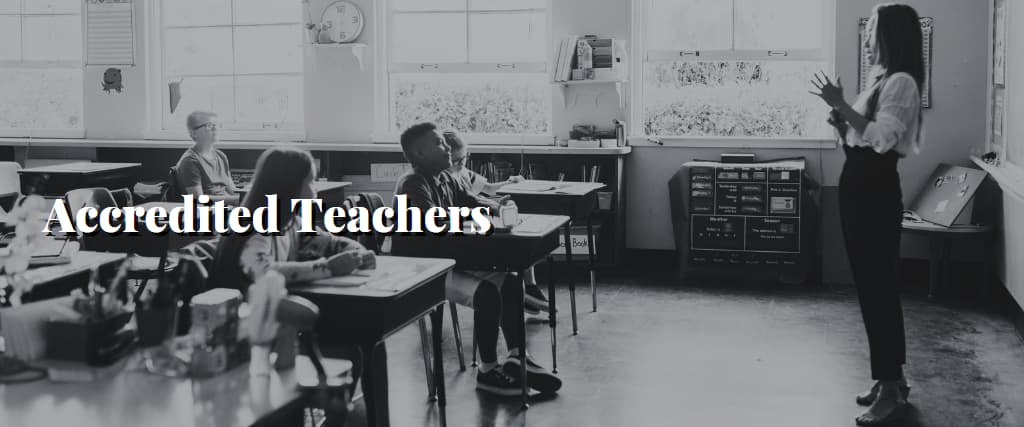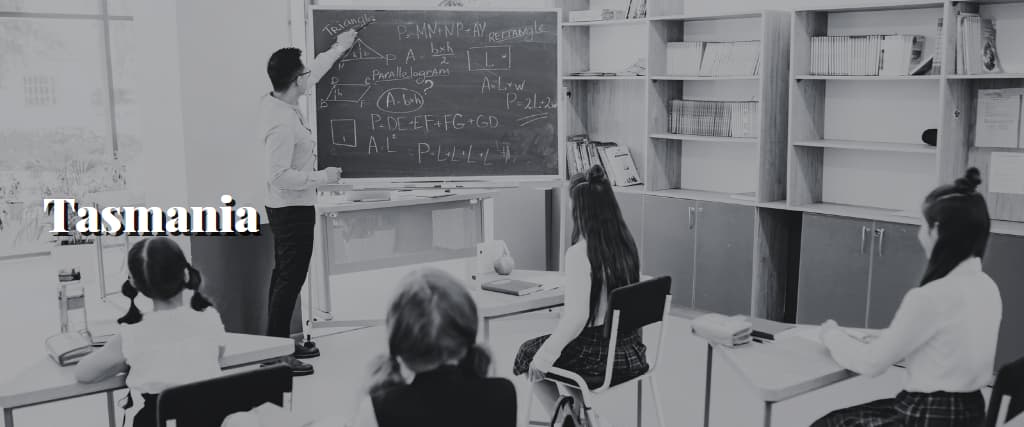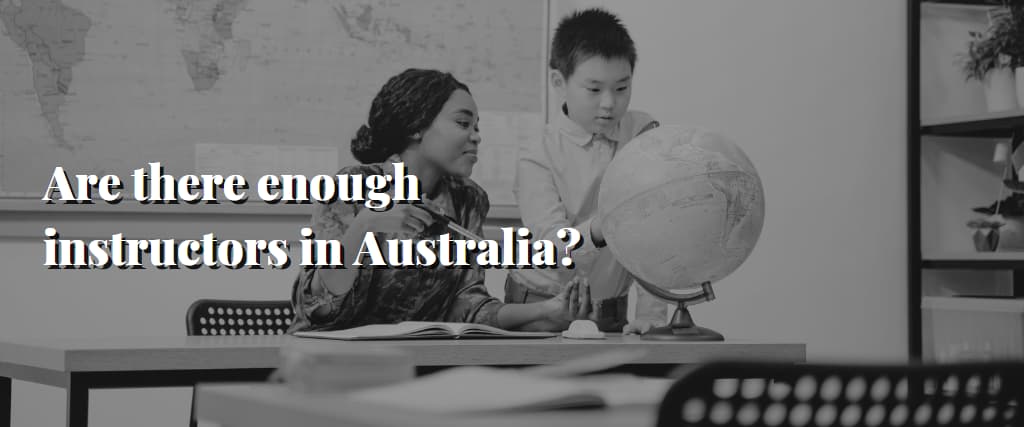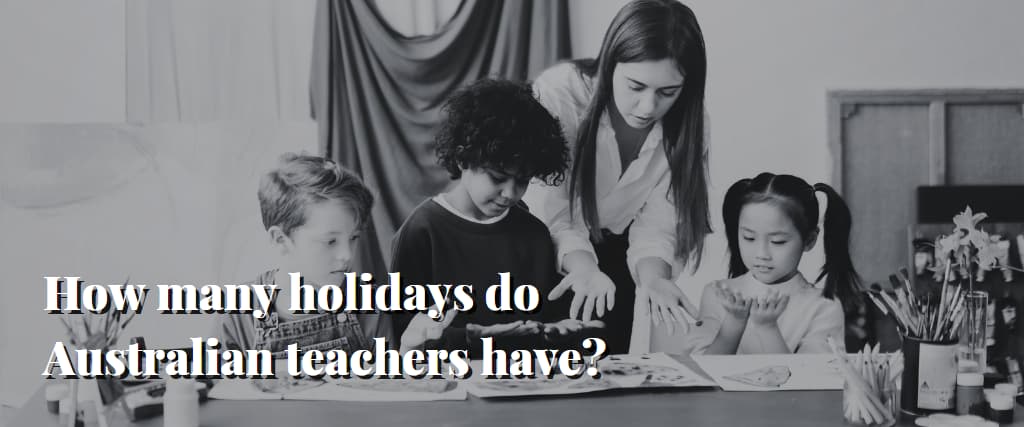Full-time teacher wages in Australia can range from $45,000 to $200,000 annually, depending on the position. In Australia, many teaching positions are available, from casual to lead teachers; therefore, your income may vary significantly based on your position.
To assist you in choosing the best job for you, this post has included teachers’ expected salaries in different Australian states.
Let’s get started!
How Much Do Temporary Teachers Get?
The remuneration for casual teachers in Australia varies according to the state or territory where they work, the grade level they are instructing, and their degree of expertise. Here is a comprehensive breakdown of casual teacher salaries in each Australian state and territory.

1. New South Wales
An overview of teacher salary in NSW:
- Band 1: Graduate Teachers: $75,791
- Band 2: Proficient Teachers: $91,413
- Band 2.1: Over $99,220
- Band 2.2: Over $103,132
- Band 2.3: Over $113,042
- Band 3: Highly Accomplished Teacher: Over $120,322
For instructors with graduate-level qualifications, the part-time teacher pay rate in New South Wales public educational institutions starts at $381.41 a day. The minimal daily wage for those with proficient-level positions is $460.01.
Teachers’ salaries in NSW public schools
The bands a teacher falls under determine how much they will pocket under the NSW PTEA (Public Teacher Enterprise Agreement). Starting salaries for teachers in NSW range from $73,737 to $109,978 for those with experience.
The Australian Professional Standards for Teachers (APST) dictates that educators in the Graduate career phase should be paid at Band 1.
Band 2.0 pay is for teachers who have advanced to the Proficient professional stage. Proficient teachers will transition to Band 2.1 after two years of employment. After every year of continuous service, a teacher will transition to sections 2.2 and 2.3.
Salary for Teachers in Catholic Schools in NSW
In NSW Catholic schools, teachers’ yearly wages range between $65,165 and $107,779, with an additional pay increase if you get the designation of Highly Accomplished Teacher.
Teachers With Conditional Accreditation
Catholic public education centres have a salary level for Conditionally Accredited Teachers, unlike in the NSW Public School System. You are paid at either Level 1 or 2 if you are a teacher who has yet to receive official accreditation.
Individuals earning an education degree without receiving all required course credits will receive Level 1 compensations. Level 2 is for individuals who have fulfilled all educational requirements for a degree in teaching but still need official accreditation.

Accredited Teachers
A certified Proficient teacher with two years of experience in the classroom will be compensated at Band 2. With each year of instructional experience, teachers advance one level from where they start.
Once a teacher is certified as a Highly Accomplished, they will advance to Band 3.
Teacher Pay in NSW Independent Schools
Based on their Band, educators in NSW Independent schools will receive salaries from $84,470 to $119,677 as of 2023. This is per the Multi-Enterprise Agreement, MEA, for NSW Independent Schools.
Instructors either at the Proficient career level or conditionally accredited in the Independent school system receive Band 1 pay.
Once a teacher has earned the title of Proficient Teacher, they will advance to Band 2.
Band 3 is for seasoned educators with seven or more years of experience in the classroom.
Career Progression
Teaching is a vocation that offers ongoing advancement and promotion chances in addition to the opportunity to make an impact and aid in forming the lives of young people.
Teachers employed by the NSW Department of Education can take on different duties, hone their leadership abilities, and compete for high-level leadership and management positions in schools. The functions may include deputy principal, principal, or executive principal.
Increased responsibility reflects in the remuneration of NSW public school leaders.
Other Financial Benefits
Teachers at high-need rural and distant NSW public schools, including relocation grants and considerable rental subsidies, get additional financial benefits.
You can use the benefits calculator for information on the benefits available to teachers working at certain schools.
Teachers in qualifying public schools in NSW have access to salary packing, which enables them to maximise their discretionary income by getting a portion of their pre-tax income in the form of perks rather than their entire salary.
Examples of possible benefits are automobiles, laptops, mobile phones, and superannuation payouts. Learn more about other financial benefits, such as salary packing.

2. Victoria
An overview of teacher salary in Victoria:
- Range 1, Classroom Teacher: Between $75,726 and $86,636
- Range 2, Classroom Teacher: Between $89.832 and $112,333
- Learning Specialist: Between $117,949 and $123,257
- Leading Teacher: Between $117,949 and $123,257
The hourly compensation for casual relief teachers in Victoria is about $67.52, with a daily cap of $405.13. This rate rises every six months, according to the Victorian state government.
Salaries of Public School Teachers
2023 Victorian teachers can expect to make between $75,726 and $112,333. The experience of the teacher will determine each person’s pay.
The Victorian Department of Education offers two categories for classroom teachers. You will begin as a graduate instructor at Range 1.1 and typically advance one level higher for each year of employment.
When you complete Range 1, the transition to Range 2 happens automatically. A school principal can promote a teacher only if they have performed well; however, this is exceptionally uncommon.
Leading Teachers and Learning Specialists
Public schools in Victoria advertise the role of teachers in these categories. The instructor chosen for these positions will have new duties in addition to their current ones.
The pay scale for Leading Teachers and Learning Specialists is Range 3. You will advance in the range as you gain experience, just like in the classroom.
Pay Increases
The statistics above show that the pay rates of educators in Victorian public schools increased in 2022 and again at the start of 2023. The Enterprise Agreement, EA, specifies the specifics of these yearly salary hikes.
Most teachers may anticipate moving up through their pay range towards the start of each year until they attain the highest pay scale level in addition to these annual pay increases.
Wages for Teachers in Catholic Schools
In Victoria, unlike in many other Australian jurisdictions, the pay rates for the Catholic education system are identical to those of the public system. Accordingly, the salary range for Victorian teachers working in Catholic schools in 2023 will be from $75,726 to $112,333. The experience of the teacher will determine the specific remuneration.
The Victorian Catholic Education Commission offers two Ranges that classroom teachers will advance through each year—just like the Department of Education. However, this depends on the teacher doing their job to a high quality.

Positions of Leadership
Regarding the compensation of leadership roles, the Victorian Catholic school system entirely differs from the public sector.
Leading Teachers and Learning Specialists have been absent in Catholic schools since the Victorian era. Instead, they hold other leadership positions that may include duties akin to those of these positions in public schools.
These educators receive a supplementary salary on top of their regular teaching compensation even though these leadership posts do not have their remuneration. Because of this, a teacher’s compensation is impacted by how many years of experience they have taught, even if they hold a leadership role.
Pay Increases
Teachers in Victorian Catholic schools can anticipate regular compensation increases, just like teachers in public schools.
Per the Enterprise Agreement, every Range on the pay scale will get a pay raise yearly. Teachers will also advance through the Ranges year after year till they hit the highest level of Range 2. Many Victorian teachers will therefore earn two wage raises each year as a result of this.
Teacher Pay at Independent Schools
The remuneration that each independent school in Victoria sets for its instructors is under their authority because each operates independently.
The Independent Education Union maintains a list of all Enterprise Agreements with independent educational institutions in Victoria. You must locate the Enterprise Agreement for the particular school if you are considering working for an independent school and are curious about their pay rates.
The Enterprise Agreements will include information on teacher pay rates, whether pay increases will be gradual, and how much instructors would receive for leadership roles.
How Can I Apply to Become a Teacher in Victoria?
You must first be registered as a teacher with the Victorian Institute of Teaching before applying for teaching positions in Victoria.
Being a registered teacher signifies that you can maintain a professional practice and are certified to teach.
You must submit supporting documentation for your qualifications as part of the application process. As you apply, you will get to know the specific details in the paperwork.
What Australian Tertiary Admissions (ATAR) Score Do You Require For Teaching Studies?
In addition to completing the requirements for literacy and numeracy, students must have an ATAR of at least 70.
Each university has its specifications for course entrance. You may learn more about the education providers’ teaching courses and the specific entry requirements.
English Language Proficiency Standards for Victorian Teachers
You must be proficient in spoken and written English to become certified as a teacher in Victoria.
Suppose you’ve finished your first teacher education or child development program studies in English over four years at a university in one of the following countries: Australia, Canada, Nz, the UK, the USA, or the Republic of Ireland. Then, this might be all you need.
If you completed any initial teacher training or early childhood program coursework outside the nations above, you must pass an approved English language proficiency test.

3. Queensland
Teachers in Queensland’s public schools are ranked and compensated according to their tenure, with each level having a different compensation scale. Which include:
- Teacher: Between $78,490 and $104,193
- Senior teachers: From $108,970
- Experienced senior teacher: Between $113,118 and $114,921
- Highly accomplished teacher: From $122,077
- Lead teacher: From $133,277
- Head of the department: Between $131,712 and $134,039
According to Education Qld, teachers in remote regions may also be eligible for additional compensation.
After some time has passed, you might apply to continue working in the educational setting as a senior teacher, veteran senior teacher, or highly accomplished lead instructor.
To become a leader, you could progress to various leadership positions, from principal to head of department or curriculum.
Rates of Pay in Public Schools
The State School Teachers’ Certified Agreement, 2022 of the Department of Education, governs teacher compensation in Queensland’s public schools. New teachers in QLD will make $71,986 in 2023, but seasoned teachers may make up to $119,518.
A Classification Level Upgrading
Classroom instructors in Qld public schools will receive at Band 1, 2, & 3.
Band 1 teachers are those who are finishing an internship. After a year of teaching experience, you will advance one step within this Band. You will increase in the Band after every year of service.
A graduate teacher will advance to Band 3 once certified as a proficient teacher.
Senior Teacher Salary
You can start your Senior Teacher applications three months before you complete Step 3 of Band 3. You must finish a task and develop your action plan to achieve this.
On OnePortal, you will have access to your commitment and action plan. You can only access this if you work for the Queensland Department of Education or one of the state’s public schools.

Senior Teacher With Experience
Experienced and senior Teachers who have worked at this level for two or more years can advance to the EST category.
You must go through a process to become an EST. This involves completing a form and having a local panel make an assessment, both of which must be approved by you and the panellists.
You must have been on Step 1 of the EST for three years to advance to Step 2 of the EST Classification level. Afterwards, you can request an APR (Annual Performance Review) meeting with your manager.
Your supervisor will determine if you are qualified to be designated as an EST2.
You should know that the Highly Accomplished Teacher (HAT) level of the Australian Professional Standards (APS) for teachers only applies to those who intend to pursue EST2 certification. Your Annual Performance Review does not have to be based on HAT-level standards if you are an EST1.
Pay Rates for Catholic Schools
The following table shows the compensation for teachers employed by Queensland Catholic schools:
| Classification | Annual Salary as of 2022 | |
| 3 Year Training | Step 1 | $69,507 |
| Step 2 | $71,886 | |
| Graduate | $78,490 | |
| Proficient 1 | $82,325 | |
| Proficient 2 | $86,233 | |
| Proficient 3 | $90,292 | |
| Proficient 4 | $97,874 | |
| Proficient 5 | $101,780 | |
| Proficient 6 | $104,193 | |
| Proficient 7 | $108,970 | |
| Proficient 8 | $113,045 | |
| Experienced Proficient Teacher | $114,920 | |
| Highly Accomplished Teacher | $122,080 | |
| Lead Teacher | $133,277 | |
| 4 Year Trained | Graduate | $78,490 |
| Proficient 1 | $82,325 | |
| Proficient 2 | $86,233 | |
| Proficient 3 | $90,292 | |
| Proficient 4 | $97,874 | |
| Proficient 5 | $101,780 | |
| Proficient 6 | $104,193 | |
| Proficient 7 | $108,970 | |
| Proficient 8 | $113,045 | |
| Experienced Proficient Teacher | $114,920 | |
| Highly Accomplished Teacher | $122,080 | |
| Lead Teacher | $133,277 |
Training Years
One scale is for teachers with a three-year education, while the other is for teachers with a four-year education. This is the length of teacher preparation that you have completed.
If you attended college for three years, your pay would depend on your position on the three-year trained scale. You will be compensated according to the four-year training scale if you spend four years on your post-graduate degree.
By completing the registration and being recognised as certified Proficient teachers, 3- and 4-year qualified educators will earn the same wage. Teachers with four years of training begin at the Graduate sorting, whereas those with three years start at Step 1.
Increasing Classification Level
Every year, teachers will switch between the various classifications. The only exception is switching to a Proficient educator, which requires you to obtain complete teacher registration and certification.
The Highly Accomplished and Lead Teacher designations are equivalent in this regard. You cannot attain these categories and pay scales automatically through experience. You must obtain a Highly Accomplished or Lead Teacher certification to access these pay tiers.
Pay Rates for Private Schools
Private schools in Queensland can set their teacher compensation.
You can contact the Independent Education Union, IEU, or the institution for further details about a particular school or industry. The IEU maintains a collection of labour contracts, including wage talks with various industries and educational institutions.

3. Western Australia
In WA, a teacher’s pay depends on performance and tenure. Beginning at level 2.1, graduate instructors can expect to make $78,397 annually. After one year of service, that income will increase to $113,568.
Senior instructors get $117,854 a year, while level 3 instructors might make between $122,308 and 125,850.
Here is an overview of Western Australia’s teacher salaries:
- Qualified teachers: Between $78,397 and $113,568
- Senior teachers: From $117,854
- Classroom teacher, Level 3: Between $122,308 and $125,850
Salaries of Public School Teachers
Public schools in WA, at various rates, employ both trained and unqualified teachers per their commercial agreement. Since WA teachers received a pay increase in December 2022, they might anticipate taking home from $62,531 to $113,568 as of 2023.
You will begin as a beginner teacher on Increment 1 of the applicable table, and as you gain experience as a teacher, you will move up the intervals.
Untrained Teachers
| Increment | Salary as of December 2021 | Salary as of December 2022 |
| 1.1 | $57,743 | $62,531 |
| 1.2 | $60,709 | $62,531 |
| 1.3 | $63,840 | $65,756 |
| 1.4 | $67,140 | $69,154 |
| 1.5 | $70,624 | $72,743 |
| 1.6 | $74,301 | $76,530 |
| 1.7 | $81,123 | $83,556 |
| 1.8 | $88,395 | $91,046 |
Additional Teaching Positions
There are two additional positions that teachers could hold in the public education system of WA. Level 3 Teacher and Senior Teacher, respectively.
These are both teaching positions, and the salary for each are listed below. Remember that Level 3 Teachers have two increments, whereas Senior Teachers do not have any that you can increase yearly.
Senior Teachers
| Increment | Salary as of December 2021 | Salary as of December 2022 |
| ST | $114,422 | $117,854 |
Level 3 Teachers
| Increment | Salary as of December 2021 | Salary as of December 2022 |
| 3.1 | $118,746 | $122,308 |
| 3.2 | $122,185 | $125,850 |
Pay Increases
A 3% rise was planned for December 2021 and December 2022. A new Enterprise Agreement must be drafted and implemented to receive a pay raise by 2023. The Education Department will also solicit input from all teachers when it negotiates the Enterprise Agreement with the AEU (Australian Education Union).
There will be additional annual wage increases for many WA teachers. You will advance in the amounts shown in the tables above as you accumulate experience.
Wages for Teachers in Catholic Schools
Teachers in Catholic schools in Washington are paid differently than their counterparts in public schools.
Although CEWA and the WA Education Department share the same Enterprise Agreement, their wages are listed here.
Trained Teachers
| Salary Level | Annual Salary ($) |
| Step 1 | $70,878 |
| Step 2 | $77,433 |
| Step 3 | $80,210 |
| Step 4 | $85,224 |
| Step 5 | $90,197 |
| Step 6 | $96,289 |
| Step 7 | $102,068 |
| Step 8 | $104,173 |
| Step 9 | $106,283 |
| Step 10 | $110,259 |
Inexperienced Teachers
Unqualified teachers do not receive raises in the Catholic sector like those in the public sector.
Persons with Limited Authority to Teach must start at step 1 of the table above and cannot advance incrementally.
Salary Enhancements
Catholic schools in Western Australia recognise senior teachers like the public sector.
Beginning in December 2022, Senior Teachers will receive an additional $5,374.
Pay Raises
As in the public sector, teachers at WA Catholic Schools got a 3% raise in December 2021 and December 2022. You also receive an additional allowance if you are officially recognised Senior Teacher.
Teachers in Catholic schools advance as they gain experience, much like in public schools. Teachers promote one step every year following their first three years of expertise when placed on Step 1.
Pays in Independent Salaries
Salaries at Independent Schools in Washington Public and Catholic schools operate somewhat differently from independent institutions.
In WA, every instructor has received a prize. The IEUA (Independent Education Union of Australia) is in charge of negotiating this. The minimum pay for all instructors in Western Australia depends on this award, which applies to educators in all fields.
| Step | Salary |
| 1 | $48,654 |
| 2 | $50,270 |
| 3 | $51,757 |
| 4 | $53,620 |
| 5 | $55,358 |
| 6 | $56,847 |
| 7 | $58,337 |
| 8 | $60,198 |
| 9 | $62,119 |
| 10 | $63,796 |
| 11 | $65,159 |
| 12 | $67,024 |
| 13 | $68,883 |
Typical Pay at Independent Schools
This award solely establishes the base pay. Your pay will be better if you work in a private school in Western Australia.
You can see that these award rates are far less than what you would receive at a public or Catholic school. Most Independent schools will pay their teachers significantly more than this minimum wage to remain competitive with other educational institutions in the state. However, all Independent schools must pay their employees this minimum wage.
In contrast to Catholic and public schools in Washington, earnings at independent schools vary according to the institution. You must speak with the specific school to learn more about salary since each has the discretion to set wages.

4. South Australia
Teachers ‘ compensation in South Australia is separated into several categories based on performance, experience, and a specific job title.
In South Australian public schools, classroom instructors can anticipate annual salaries ranging between $74,769 and $108,441, with the potential for higher wages for teachers in particular specialties.
An overview of South Australia’s teacher salaries:
- Classroom teacher: Between $74,769 and $108,441
- Highly accomplished teacher: From $117,680
- Itinerant teacher: Between $84,115 and $121,996
- Lead teacher: From $124,393
Based on experience and credentials, classroom teachers in South Australian public schools can expect to earn from $60,198 to $124,393 annually. The following table shows the detailed salaries:
| Step | After 1.5.2020 | After 1.5.2022 | |
| Special Authority | 62,229 | 65,188 | |
| 1 | 71,375 | 74,769 | |
| 2 | 75,054 | 78,623 | |
| 3 | 78,738 | 82,482 | |
| 4 | 82,415 | 86,334 | |
| 5 | 86,107 | 90,202 | |
| 6 | 89,787 | 94,057 | |
| 7 | 93,467 | 97,911 | |
| 8 | 98,446 | 103,127 | |
| AST1 (Key Teacher Fallback) | 9 | 103,518 | 108,441 |
| AST2 (Key Teacher Fallback) | 107,350 | 112,455 | |
| Highly Accomplished Teacher (HAT) | 112,338 | 117,680 | |
| Lead Teacher (LT) | 118,746 | 124,393 |
Special Authority Teacher’s Salary
If you professionally serve as a teacher but lack a teacher’s registration, you’ll get as a Special Authority instructor. You must obtain your SA Teacher’s Registration before you can do any subsequent step.
There are few Special Authority educators, but if you’re a teacher in your last year of graduate school, you might get compensated at this tier.
Increasing Pay Scalar Levels
You will advance one level every year till you reach step 8 if you have your teacher registration. You must apply to go to step 9.
It is also crucial to remember that you can only go to step 4 if you have completed your Teacher’s Registration. This means that you must finish the process to go from the Graduate job stage to the Proficient career stage.
You might be able to start your professional life on a higher step if you have extra credentials, such as an Honours or Master’s degree. It depends on the degrees you have earned, which is occasionally the case.
Each action equates to 200 days in the classroom or an entire year of teaching. Ask your primary schools for proof of service if you have experience teaching abroad, in another country, or a different industry.
This paper will detail your employment history as a teacher, and you may present it to your school or the Department of Education to advance.
Additionally, you will receive it for any time you were not paid when due.
Key Teacher Fallback (AST2)
If you have undergone an Advanced Skills Teacher evaluation, you’ll receive it at the AST2 phase. If you are not now an Advanced Skills educator, you will never be one because Lead Teacher and Highly Accomplished accreditation just replaced this procedure.
You will be compensated at this level if you retire to classroom teaching after serving in a leadership capacity for five years. It needs more than five years in the same position or under the same contract.
Highly Successful and Effective Teachers
You can be paid at these levels if you have been evaluated and are certified as a Highly Accomplished or Lead Teacher. Simply receiving your accreditation won’t increase income.
You can apply for specialised opportunities as a Lead Teacher or Highly Accomplished Teacher if you are one of these individuals. Accreditation does not automatically translate into compensation at this level because you must work as a Lead or Highly Accomplished Teacher.
Annual Pay Increases for Teachers in SA
According to the existing Enterprise Agreement, all teachers will get annual wage increases at all levels and steps.
No additional increases were stated beyond 2022 because the current Enterprise Agreement for the South African Department of Education terminates on 23 March 2023. Annual wage increases will continue but will be specified in the upcoming Enyearlyse Agreement.

5. Tasmania
In Tasmania, teachers’ pay varies according to their training and credentials.
Public school teachers in an island state are in five bands, each with different salaries. The groups are:
- Specialist VET Teacher: From $66,730 and $105,094
- Two-Year Training: From $64,699 and $82,299
- Three-Year Training: From $64,699 and $105,094
- Four-Year Training: From $70,794 and $105,094
- Five-Year Training: From $74,434 and $106,764
Relief Teacher Salaries in Public Schools
Depending on your level of education and experience, an enjoyable teacher in a Tasmanian school (public) made from $35.55 to $58.66 an hour in 2022.
The amount of time of your aggregate degrees that count toward your teaching certification depends on the phrase “years of training.” You will be considered “Three Year Trained” with a Three-year teaching degree. You would be regarded as “five Year Trained” if you earned a three-year degree in a related discipline and a two-year teaching degree.
Teachers employed by a TAS public school are permitted to advance past Level 9 on these pay ranges if they convert to complete teacher registration. Band 1 is assigned to all teachers; bands 2 through 5 denote leadership or higher ranks.
Based on how long they have been teaching. Each level represents an additional 200 school days of instruction. Your starting level will depend on how long you’ve been training.
Rates of Teacher Relief at Catholic Schools
Your pay rate is slightly simpler to calculate if you work as a relieving teacher in a Catholic school in TAS. According to the Catholic Education Office, relief instructors will be paid a daily or hourly rate based on the time they work in a day.
The pricing will vary depending on your level. Similar to the public system, after 200 days of employment as a teacher, you will advance one level:
| Level | Hourly rate | Daily rate |
| 1 | $59.245 | $296.225 |
| 2 | $61.202 | $306.01 |
| 3 | $62.972 | $314.86 |
| 4 | $64.827 | $324.135 |
| 5 | $68.159 | $340.795 |
| 6 | $71.671 | $358.355 |
| 7 | $75.36 | $376.8 |
| 8 | $79.249 | $396.245 |
| 9 | $83.328 | $416.64 |
| 10 | $87.569 | $437.845 |
| 11 | $91.634 | $458.17 |
| 12 | $96.233 | $481.165 |
| 13 | $97.763 | $488.815 |
Pay Rates for Independent School Relief Teachers
Tasmania’s independent schools will determine their pay scales. If you are a relief teacher considering employment in a private school, you must speak with the institution directly to learn the salary range.
Do TAS Relief Teachers Get a Pay Raise?
According to Catholic Education, the state of Tasmania, unless otherwise stated, their incremental percentage rise will correspond to the public system. Every year, until you reach a specific level, you will move up in both the Catholic and public school systems. Additionally, as stated in the Award or Enterprise agreement, you can see an annual percentage increase
6. Northern Territory
In the NT, public schools compensate teachers according to seniority, with pay bands spanning $81,739 for a CT1 and $117,225 for a CT9.
According to the Teach in the Territory site, teachers might anticipate moving to the band CT4 at the start of their fourth academic year, earning $94,039, indicating how rapidly they can advance through the bands. This is provided the teacher meets specific requirements, such as finishing the necessary PD.
The pay bands for senior teachers span $129,663 for an ST1 and $175,734 for an ST8 level educator.
An overview of teacher salary in the Northern Territory:
- Classroom teachers: Between $81,739 and $117,225
- Senior teachers: Between $129,663 and $175,734.

Teacher Pay in Public Schools
In 2023, your starting salary will be $77,047. Up to $165,646 can be earned by an experienced teacher only by spending time in the classroom.
The following table shows your pay as a full-time teacher in a public institution of learning in the Northern Territory:
Scale for Paying Classroom Teachers in the Northern Territory
| Step | 2023 Annual Salary |
| 1 | $77 047 |
| 2 | $80 911 |
| 3 | $84 777 |
| 4 | $86 641 |
| 5 | $92 505 |
| 6 | $98 902 |
| 7 | $102 768 |
| 8 | $106 631 |
| 9 | $110 496 |
Steps for Classroom Teacher Pay
You will begin your professional life on step 1 of the Classroom Teacher salary scale if you hold a four-year education degree and no prior teaching experience. For each year you have spent working in a classroom, you will automatically advance one step.
Your principal may pay you more than you ordinarily receive based on your experience if you perform admirably and are a highly successful teacher. But it’s common to see this.
Senior Teachers are regular classroom instructors in the NT who have obtained a promotion. This may happen for several reasons:
- You’ve taken on a leadership position
- You are working extra hours for the department for learning or the school.
Most school administrators will fall somewhere along the Senior Teacher pay range. School principals are an exception to this rule because they are compensated using a distinct pay scale.
The following table shows the Senior Teachers’ salaries:
| Step | 2023 Annual Salary |
| 1 | $122 220 |
| 2 | $127 061 |
| 3 | $135 046 |
| 4 | $138 868 |
| 5 | $148 468 |
| 6 | $153 159 |
| 7 | $158 586 |
| 8 | $165 646 |
Senior Teachers may progress up the salary range as they gain more outstanding expertise. For example, the school may have designated a specific area on the pay scale for a particular position (like Curriculum Coordinator). Each school’s principal is responsible for making these choices.
Salaries for Teachers in Catholic Schools
The wage rates for teachers at Catholic schools in the North Territory are comparable to those in public schools. Due to a few minor variations, the following table lists the wages of Catholic school teachers in the NT:
| Step | Annual Salary |
| 1 | $77,048 |
| 2 | $80,911 |
| 3 | $84,777 |
| 4 | $88,640 |
| 5 | $92,506 |
| 6 | $98,903 |
| 7 | $102,769 |
| 8 | $106,632 |
| 9 | $110,498 |
Graduate educators will start on Step 1 and go up one level for each year of teaching experience, just like in the public school system.
Additional Compensation
Teachers may receive a bonus based on qualification against the Australian Professional Standards for Teachers and the above salary. The following details these allowances:
Teacher of Advanced Skills
| Classification | Annual Allowance |
| AST1 | $5,653 |
| AST2 | $9,743 |
Highly Accomplished Teacher
| Classification | Annual Allowance |
| HAT | $8,830 |
Coordinator (Religious Education or Other)
| Context | Annual Allowance |
| Primary | $9,743 |
| Secondary | $10,623 |
Teacher Pay at Independent Schools
Arctic Territory Independent schools can decide how much to pay their teachers. The Enterprise Agreements that many of them have are unique to each institution, but many do have them.
If you are considering working for an NT Independent school, you may need to contact the institution directly to determine how much they pay their teachers. The IEU also provides information about pay at particular schools on their Media Release website. If you have any further queries, you may also contact them.

7. Australian Capital Territory
In the ACT, teachers’ four leading pay bands range from $72,511 for recent grads to $114,624 for the most seasoned educators. The salary scales include:
- Three years trained: Starting $72,511
- New educators: Between $76,575 to $84,729
- Experienced teacher 1: Between $88,805 to $101,036
- Experienced teacher 2: Between $107,832 to $114,624
The preceding salaries should be understood to be basic salaries alone and not to include any additional allowance or incentives. Additionally, the pay differs according to the level of the school, whether it is public or private, and the degree of instruction provided.
Australia’s states and territories have many teacher wages and bands. It’s critical for teachers to comprehend the pay scale in their region or state and to bargain for a fair wage. Ensuring that teachers are fairly compensated for their efforts and acknowledging teachers’ crucial role in society are equally important for legislators.
Pay Rates for Public School Relief Teachers
Depending on your level of teaching experience; you can expect to make from $285 to $446 a day as a relief educator in ACT public schools. The table below shows the actual wages for 2022 (and prior pay rates from the last few years):
| Classification | Pay rates in 2019 | Pay rates in 2020 | Pay rates in 2021 | Pay rates in 2022 |
| Permit to Teach Casual | $269 | $277 | $285 | $289 |
| Casual Rate 1 | $370 | $381 | $392 | $398 |
| Casual Rate 2 | $420 | $433 | $446 | $453 |
In the ACT, you will receive a daily rate as a substitute teacher rather than an hourly rate. As a certified teacher, your pay will start at Casual Rate 1. You can only advance to Casual Rate 2 if you have the equivalent of seven years of verified full-time employment or if your experience places you at the highest level of the Classroom Teacher pay scale.
Pay Rates for Catholic School Relief Teachers
In an ACT Catholic school, relief teachers are compensated from $369.46 to $473.33 daily. The chart below shows the actual pay rates for each band during the previous few years:
| Classification | Daily pay rate from 1/7/2020 | Half-day pay rate from 1/7/2020 | Daily pay rate from 1/7/2021 | Half-day pay rate from 1/7/2021 |
| Conditionally Accredited Teacher (Level 1) | $358.70 | $179.35 | $369.46 | $184.73 |
| Conditionally Accredited Teacher (Level 2) | $378.85 | $189.43 | $390.22 | $195.11 |
| Band 1 (Graduate) | $378.85 | $189.43 | $390.22 | $195.11 |
| Band 2 (Proficient) | $459.55 | $229.77 | $473.33 | $236.67 |
You will make more money working as a relief educator at Catholic schools in the ACT than in a public institution. Catholic schools have a higher starting pay rate, but you can advance to Band 2 more quickly.
While public schools require a minimum of seven years of experience to offer a band, Catholic schools require you to progress from Graduate to Proficient. Even while it could take some time, if you put in a lot of effort, you could do it in less than seven years.
Teacher Relief Pay Rates in Independent Schools
Numerous ACT-based independent schools will determine their pay scales. If you are a relief teacher considering employment in a private school, you must speak with the institution directly to learn the salary range.
While private educational institutions in the ACT operate independently and each pays relief teachers at various levels, public and Catholic schools in the ACT are all overseen by the same administration.
Are Act Relief Teachers’ Pay Rates Going Up?
The annual percentage increase in these pay rates will remain the same, although it has yet to be decided what it will be. Public school salaries will also rise annually by a certain percentage.
You may also advance through the tiers or bands as you gain more expertise. The ACT only has two pay tiers for Catholic and public schools, in contrast to many other regions of Australia, and you need a lot of experience as a teacher to go up a tier.
Both of them need a particular time at a full-time teaching load, which could take a relief teacher significantly longer to accomplish you will likely be working every day.
You can receive a statement of service from your primary schools if you have the necessary experience to advance a tier. Still, your previous teaching experience was in a different state, abroad, or in another industry. To recognise your teaching experience, you may present this to your present job.
Frequently Asked Questions

Are there enough instructors in Australia?
There is a significant demand for teachers of all kinds in Australia, and this trend will likely continue for a couple of years. There need to be more teachers in the country’s classrooms, especially in rural and remote locations and in the subjects of math and science.
How much money do Australian secondary school teachers make?
In Australia, a secondary teacher makes, on average, $92,045 a year, or $47.20 an hour. Most qualified employees earn up to $106,642 annually, whereas entry-level roles start from $83,448.
Are Australian teachers compensated over the summer?
Based on the number of school days they worked during the academic year, permanent teachers are eligible for remuneration during the summer school break. While other schools are only allowed to have 28 days off, remote schools get to take 33 days.
Are Australian teachers happy?
Teachers are getting less and less pleased at work. Over 65.6% of Australian teachers who participated in a 2019 study stated they were pleased with their work. That percentage decreased to 45.8% in 2022. Teachers claim due to feeling undervalued.
Can an African teacher teach in Australia?
Yes, African teachers can get teaching jobs in Australia. However, to qualify as a teacher in Australia, you can complete a four-year bachelor’s degree in education or a bachelor’s degree in any other field and then enrol in a two- or one-year postgraduate diploma program in teaching. After that, you can apply for Australian teaching registration.
How many hours do Australian teachers work?
The working hours for teachers in Australia vary with state. The workload of each instructor should not be excessive or inappropriate and should be shared fairly whenever possible. The Victorian Government Schools Agreement 2022 outlines the following duties for teachers working a 38-hour workweek.
How long does it take to become a secondary school teacher in Australia?
You must first complete a four-year teaching degree that enables you to teach in preschool, primary school, or, in certain instances, high school, based on where you studied. Complete a postgraduate teaching degree and an undergraduate program in a particular field, such as physics or music.

How many holidays do Australian teachers have?
A full-time teaching service worker, including principals, teachers, education support staff, and paraprofessionals, is entitled to 152 hours or 20 days of annual leave for every year of service. These hours are accrued gradually over the year of service in accordance with the employee’s regular working hours.
Why is there a teacher shortage in Australia?
Critical shortages in educators have been achieved in the US, UK, Europe, Australia, and Africa. Due to a lack of workable legislative solutions, the demand and supply of teachers, especially in “hard-to-staff” places, remains a problem. This problem was exacerbated during the pandemic.
Which Australian regions need teachers the most?
According to Victoria authorities, the fadelightedrowing state territory in Australia, the state would require an additional 1300 teachers annually over the next four years to accommodate the estimated enrollment of 90,000 pupils.
Are Australian teachers paid during school holidays?
School holiday compensation is due to primary principals, deputy principals, educators, and the Category B Educational Support and School Services Officers. Employees in Categories C Education Support and C School Services Officers receive up to seven weeks of paid vacation.
Do private school teachers in Australia receive higher pay?
Salary levels at many private education institutions are higher than those in the public sector. Jobs in inner-city private institutions have been advertised with basic salaries as high as $160,000 in recent months, while principals in rural areas have also reported receiving competitive offers.